Have you ever had a feeling of sheer satisfaction upon finishing a great meal? That is what you can expect to experience when you dive into the music of AIJOU.
Since making her debut with 'Don't Close Your Eyes' in 2020, each of the three singles that the rising local singer-songwriter, whose real name is Jonique Tan, has released has been a display of the meticulousness with which she approaches song making.
Much like how nourishing dishes can make one feel refreshed, AIJOU's ruminative and relatable lyrics — birthed by carefully bringing together the English and Japanese languages — give listeners much to reflect on regarding life and the struggles that come with it.
No dish is complete without plating, and AIJOU's offerings are no different. An amalgamation of influences from the worlds of J-pop and Western pop, and even EDM, the 22-year-old artist's sound not only beautifies her music, but also further brings out the emotions she wants to convey through it.
"I believe my songs would always sound like a mix of both Western and Japanese pop music because I think and feel in both of these genres," shares AIJOU, who graduated from Republic Polytechnic with a Diploma of Sonic Arts.
Having already released two singles this year, the *SCAPE ALT. Residency programme alumnus is now gearing up for the launch of her debut EP. Titled 愛し、愛死 (Loving, Love Dying), the project is scheduled to be unveiled on 28 July.
In an interview with Hear65, AIJOU reveals how she got into making music, explains how she combines two languages in her songs, and talks about being vulnerable in her forthcoming EP.
Hi, AIJOU! What’s the story behind your stage name?
Hi! AIJOU is a combination of the “ai” in the word “idol”, and the first two letters of my name “Jo”. Additionally, it is “アイジョウ” or “愛情” in Japanese, which translates to “love”. I felt that it fit who I was as a person and what message I wanted to portray to the world.
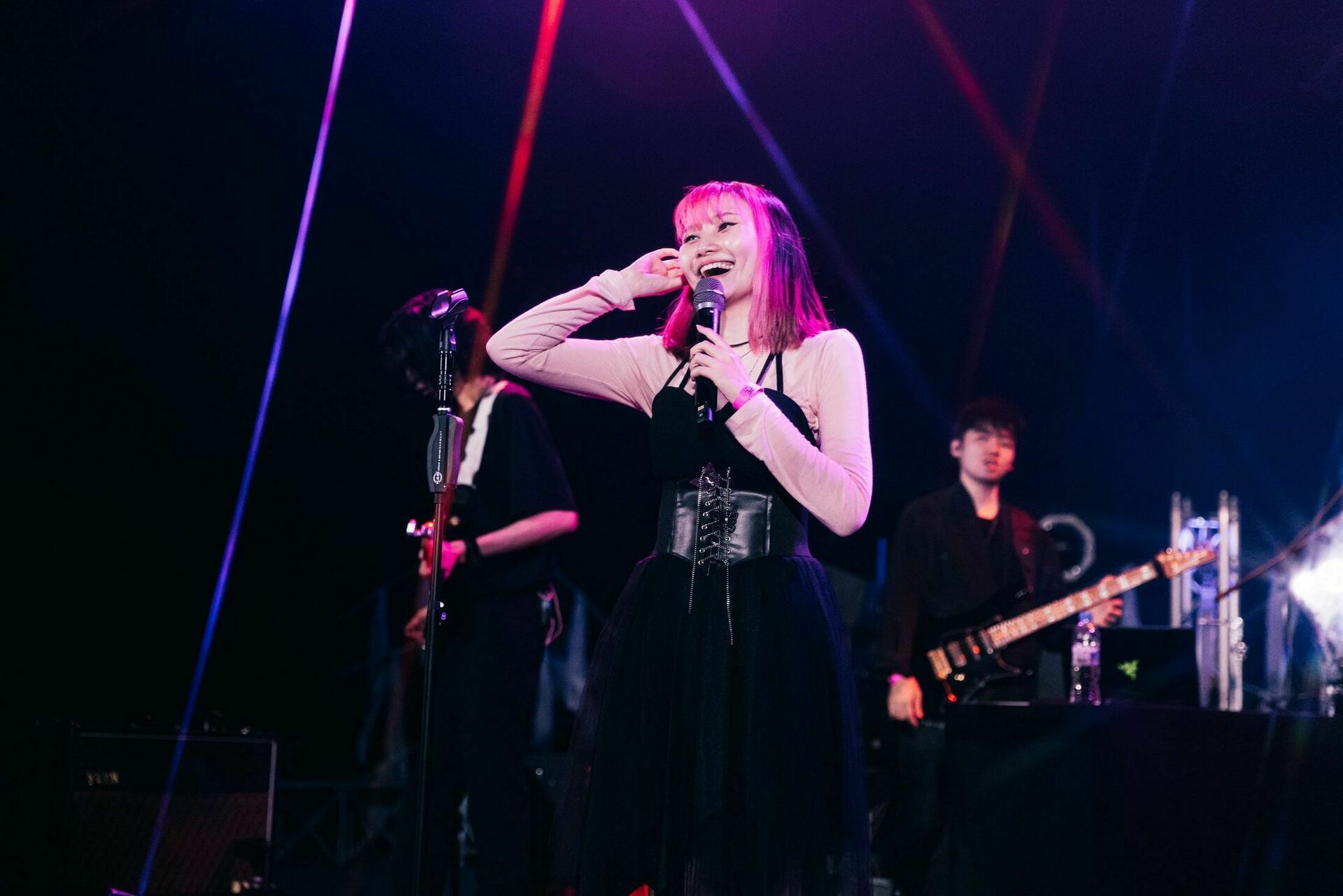
Credit: Chan Qing Hao
How did you get into making your own music? Were there any particular artists or songs that inspired you in the early stages of your music journey?
It started out with listening to Taylor Swift songs and rewriting the lyrics with cute glitter pens! 12-year-old me eventually wanted to write my own songs and I started picking up the piano and the ukulele to create chords, and that was how everything kicked off. It took many filled-out notebooks and years of continuous writing to finally get the courage to release my first song in 2020.
Taylor Swift was a very big inspiration to me in my early days of writing and still influences me to this day. Japanese music and anime were also a big part of my life, with J-pop acts such as AKB48, LiSA, and RADWIMPS being a few of my very early influences. I eventually expanded my tastes to [include] various artists from different influences, such as Porter Robinson, Billie Eilish, Ado, Asmi, and Yorushika.
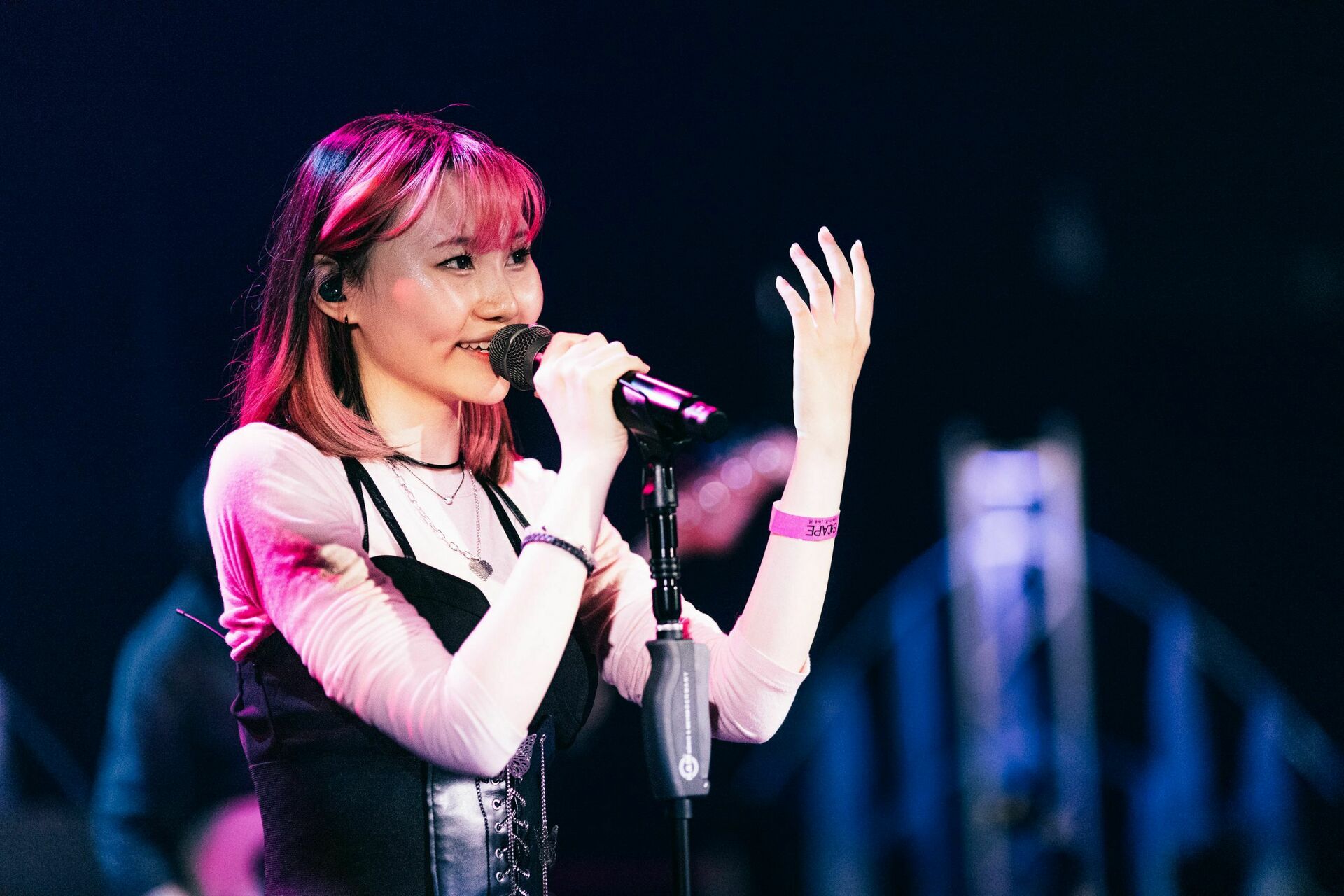
Credit: Chan Qing Hao
"It took many filled-out notebooks and years of continuous writing to finally get the courage to release my first song in 2020."
Let’s talk about your J-pop-influenced sound. What do you think differentiates your creations from other works that belong to this form of music?
I believe my songs would always sound like a mix of both Western and Japanese pop music because I think and feel in both of these genres. I’m still navigating my way through the waters, but it’s always fun to experiment with how these polarising characteristics of music could blend with each other.
"I believe my songs would always sound like a mix of both Western and Japanese pop music because I think and feel in both of these genres."
You’ll be launching your debut EP, Loving, Love Dying, this year. How does it feel to finally be able to share this project with the world?
This EP was made almost a year ago and to finally release it after refining it for so long is exciting for everyone involved. We went through many versions of songs and lyrics, many late nights and Grab cars home, and lots of coffee haha! Needless to say, we’ve poured our hearts out for this EP, and I can’t wait to show it to the world.
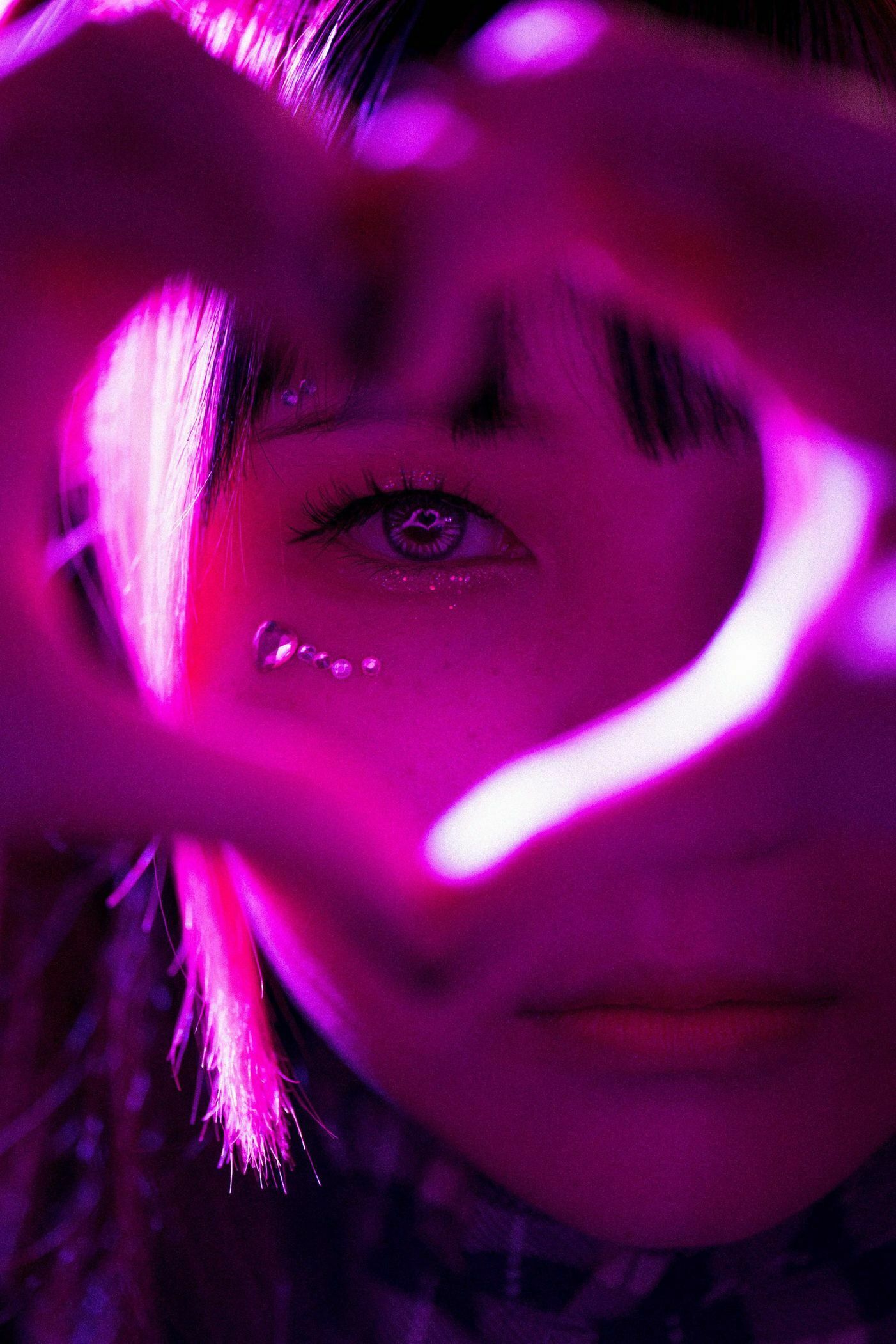
Credit: Peegion Photography
This is a deeply personal EP that recounts the journey you have had to take to get to where you are today. Was it difficult for you to revisit the darker periods of your life when you struggled with issues such as self-loathing?
I still struggle with it to this day. Music has always been my outlet when it comes to speaking up about my own personal feelings or emotions, but having to rewrite them in a different language makes you think from different perspectives. A simple emotion could be described in so many ways, and I would go through this cycle of emotions just to pinpoint how I actually felt in my most vulnerable moments. I have shed many quiet tears [while writing] through the nights.
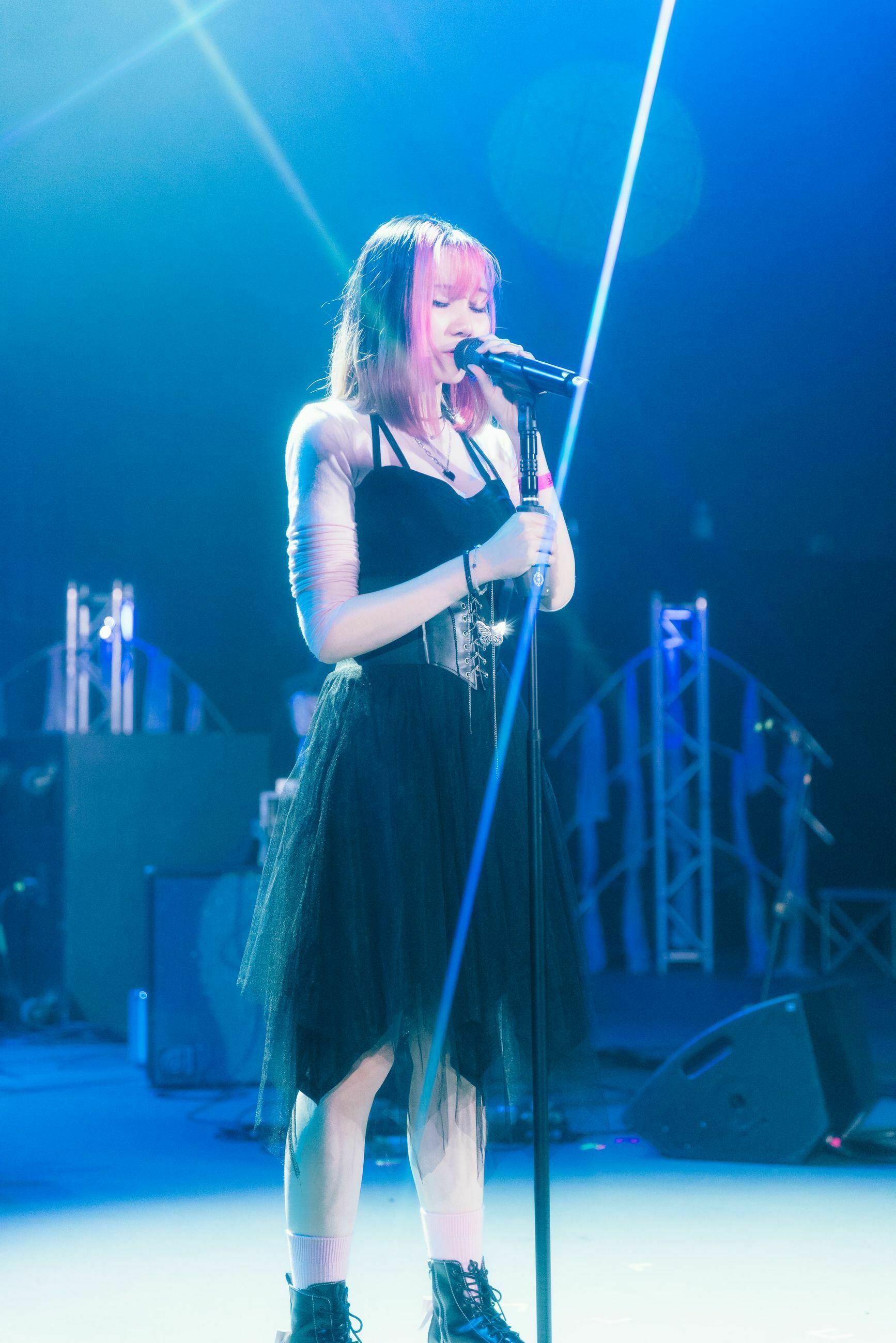
Credit: Chan Qing Hao
"A simple emotion could be described in so many ways, and I would go through this cycle of emotions just to pinpoint how I actually felt in my most vulnerable moments."
You’ve said that combining English and Japanese lyrics in this project is “a form of poetry” that helps you “convey the complexity of emotions”. What were some things that you had to pay attention to while bringing together these very different languages?
Vowels and phonetics were something I had to consider while mixing these two languages. On a technical level, they not only had to make sense linguistically, but they also had to match the length of the phrase and the rhyming scheme. I went through an entire catalogue of songs to analyse the lyrical writing of both English and Japanese artists, comparing their forms and structures and putting my spin on them.
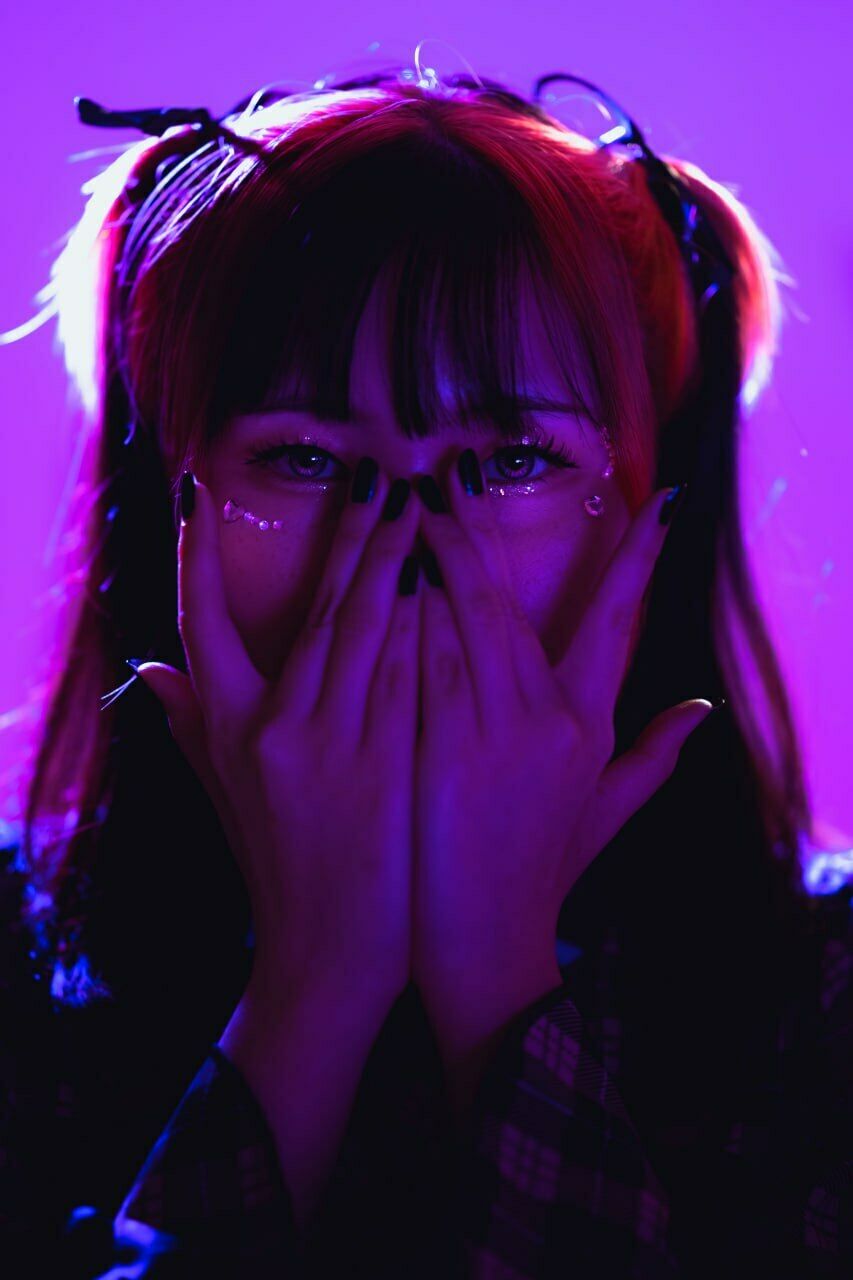
Credit: Peegion Photography
"I went through an entire catalogue of songs to analyse the lyrical writing of both English and Japanese artists, comparing their forms and structures and putting my spin on them."
You were part of the 2022/2023 edition of the *SCAPE ALT. Residency programme, where you were mentored by local musicians such as Jason Gelchen, MJ Tan, and Daryl Hor (AKA Sun Cell). How did your time as one of the programme’s mentees help you to grow as an artist?
I look up to my mentors immensely. They have guided me through every part of my music journey with them, dishing out advice and giving me the opportunities to interact with other local musicians and producers in the industry. I became more aware of what it is really like to be an undeniable artist, and how to take charge of my works. I also learnt how much heart and soul they have put into being where they are right now, and how blessed we all are to pursue music careers. My time with them has been nothing short of a blessing, and I am grateful for every moment I got to be mentored under them.
View this post on Instagram
"I plan to get better at my craft, get completely immersed in my art once again, and hopefully come back with a different side of me."
Finally, what are some goals that you have for yourself for the next chapter of your music career?
I plan to get better at my craft, get completely immersed in my art once again, and hopefully come back with a different side of me. I still have a long way to go and so many ideas I would like to try out. For now, I’ll take it one step at a time.
Pre-save 愛し、愛死 (Loving, Love Dying) here.
Stream AIJOU's 'Into The Heights' here:



